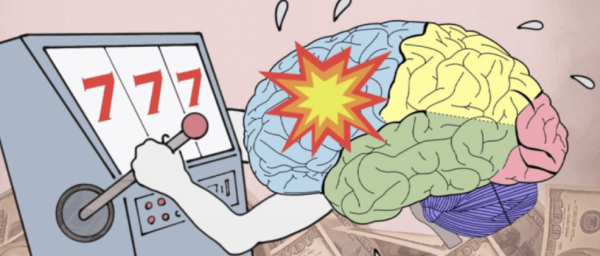Gaming as College Test Prep: Decision Making and Strategic Thinking
To be honest, the concept of using video games to get ready for college admission tests seems like a teenage dream come true for more gaming time. From the busy gaming cafés where people play Aviator India to the homes of American students, something is intriguing happening: video games are silently becoming an unexpected friend in exam preparation. And even if your parents would object to this idea, the evidence supporting it is more convincing than you would have thought.
The Secret Relationship Nobody Is Talking About
Indeed, we have all heard about how games could sharpen hand-eye coordination or problem-solving ability. The way our brains handle failure in video games, however, may be the key ingredient for fostering test-taking resilience. Consider it: upon death in a game, you want to attempt again right away. There is only a brief examination of what went wrong and another try; no humiliation or self-doubt. Imagine now approaching tests with that same attitude. Game over? Not at all problematic. Turn around and try one more.
The Psychological Edge Nobody Thought Possible
The psychological phenomena of "flow state" in gaming may be the missing link in exam preparation, something that seldom makes it into conventional writings on gaming and education. Exactly what students need during a high-stress test, gamers achieve a state of increased attention and lower anxiety when they are engrossed in a demanding but controllable game. This mental state has been demonstrated to greatly lower exam anxiety and increase memory.
Beyond the evident advantages
Although most conversations center on logical reasoning and pattern detection, let's now address some unexpected relationships deserving of additional thought:
The Language of Loading Screens
Ever noted how fast players respond to knowledge from loading screen tips? This instantaneous absorption of important data reflects the fast decisions required for test sections with limited time. This fast information processing ability becomes especially helpful in reading comprehension parts where fast analysis is essential.
The Resource Management Meta-Game
Here's a curveball: game inventory control like Resident Evil or Minecraft might aid with test time management. Under pressure, players must continuously make judgments concerning little resources; they must acquire an instinctive sense of resource allocation that remarkably well transfers to managing time and mental energy throughout extended exam sessions.
The Social Component Nobody Is Thinking About
Multiplayer games serve communication and strategy exchange as much as they do competitiveness. Sophisticated methods for exchanging strategies and answers have evolved among gaming communities, therefore generating a special model for group exam preparation transcending conventional study groups. Many times, these groups create creative solutions for problems that may be used on standardized tests.
Real Talk: The Challenges and Remedial Action
Let's take care of several elephants in the room that other sources typically overlook:
The Addiсtion Question
Indeed, we should talk about it. Games may be addicting as well as useful learning aids depending on the same components. Studies show that organized gaming sessions with well-defined learning objectives might assist in preserving the advantages while reducing addictive hazards. A few successful tactics are:
-
Reword standard learning assignments as rewards from gaming.
-
Configuring personal parental controls... on oneself (yes, indeed)
-
Establishing "study guilds" whereby collaborative study sessions define gaming time
-
Using rigorous time-boxing methods applied by elite players
-
Tracking and restricting gaming sessions using productivity applications made for gamers
The Content Hole Issue
To be honest, nothing in Minecraft will teach you trigonometry straight-forward. But creative solutions have surfaced to bridge this disparity:
-
Вesigning bespoke gaming settings incorporating real-world test materials
-
"Gamifying" study materials using game design concepts
-
Creating memory systems grounded on game maps and layouts
-
Tracking study development using game success mechanisms
-
Developing quest-like frameworks to address several areas of interest
The Cognitive Training Nobody Expected
Recent studies have revealed some amazing relationships between gaming and cognitive development that directly affect test-taking capacity:
Pattern Identification Development
Regular players demonstrate the improved capacity to identify and anticipate trends in challenging data sets — a critical trait for standardized testing. This enhancement covers more than just basic pattern matching to include:
-
quick multiple variable analysis
-
rapid recognition of pertinent material improved capacity to disregard distractions
-
quicker visual processing speed
Under Pressure Making Decisions
Like many standardized exam problems, gaming situations can call for split-second judgments with inadequate knowledge. This instruction aids in the development:
-
Rapid assessment of several options
-
The ability of risk assessment
-
Strategies for time management
-
Strategies for handling stress
The Future Is Already Here
Certain forward-looking test preparation organizations are already creating games specially meant for standardized exam readiness. The surprise is that, compared to traditional games, pupils sometimes find them less effective. For what reason? Since they lack the essential component—real participation. The difficulty ahead is not in creating instructional games; rather, it is in realizing what makes ordinary games instructive.
Useful Advice Nobody Other Is Discussing
-
Apply speedrunning methods to raise test-taking effectiveness.
-
Set "save points" in your study schedule, just like in a game.
-
View practice tests like game levels with "boss fights" (challenging portions).
-
Create a "skill tree" for your exam preparation to open fresh study strategies as you go.
-
Apply tactics for raid preparation to test planning strategy
-
Track academic advancement using game success techniques.
-
Set cooldown times for various study environments.
-
Establish related ideas and subject quest chains.
Looking forward: the next level
New kinds of exam preparation that blur the distinctions between gaming and studying even further as virtual and augmented reality technology develops might emerge. Imagine utilizing AR to view difficult mathematics ideas in actual space or VR to practice spatial reasoning issues. Already headed on this path, educational technology has several exciting developments:
-
Virtual reality settings for spatial reasoning development
-
AR is used for visualizing mathematics
-
Mixed reality environments for research
-
Systems of adaptive learning grounded on gaming concepts
-
Platforms for social learning motivated by massively multiplayer design
The Finish Line
The link between gaming and exam preparation is more complicated and more hopeful than most people would have you know. Although conventional approaches are still fundamental, one cannot overlook the cognitive advantages of strategic gaming. The secret is not to substitute gaming for learning but rather to see how gaming ability may improve study methods.
Recall that every learner must strike an equilibrium between conventional learning techniques and creative approaches, much as every game has its best strategy. Though far more entertaining than flashcards, maybe it's time to start viewing gaming as another tool in the educational toolbox instead of the enemy of academic achievement.
|
|















